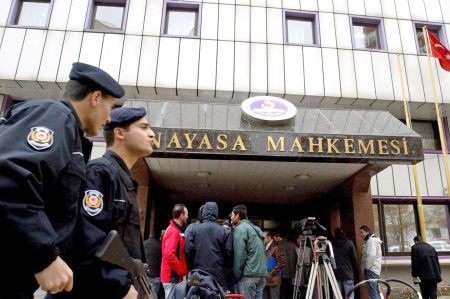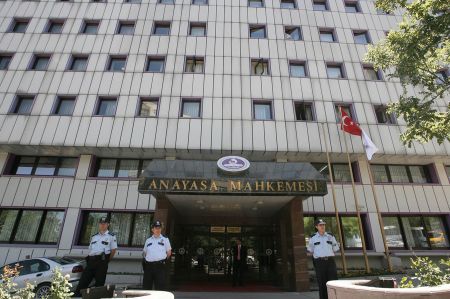Constitutional court rejects extension of pre-trial detention
- Written by Portal Editor
For years, the Council of Europe and the European Court of Justice have been asking Turkey to reform the application of pre-trial detention.
The Turkish Minister of Justice had announced a reform package, but there are legitimate doubts about its implementation. Currently, pre-trial detention for violations of the Anti-Terrorism Act is five years, which can mean that citizens can be imprisoned for up to five years without specific reasons. Now, after the protests that started in Gezi Park, the Turkish parliament had come up with a "reform proposal" that provided for an extension of detention to 10 years!
 Only last Friday the constitutional court rejected this bill due to "disproportionality". The draft law provided for an extension of detention from five to ten years for terrorist activities against the state. The interpretation of the Turkish anti-terror law is not only highly controversial in Turkey and is declared unconstitutional by the Turkish opposition, since it can also be used against government critics. The public prosecutor's office is granted the right to confiscate the property of persons, organisations, associations, newspapers and companies that are only suspected of financing terrorism and to freeze banking transactions. The accused can also be charged with membership in a terrorist organization. A carte blanche for the judiciary in dealing with government critics.
Only last Friday the constitutional court rejected this bill due to "disproportionality". The draft law provided for an extension of detention from five to ten years for terrorist activities against the state. The interpretation of the Turkish anti-terror law is not only highly controversial in Turkey and is declared unconstitutional by the Turkish opposition, since it can also be used against government critics. The public prosecutor's office is granted the right to confiscate the property of persons, organisations, associations, newspapers and companies that are only suspected of financing terrorism and to freeze banking transactions. The accused can also be charged with membership in a terrorist organization. A carte blanche for the judiciary in dealing with government critics.
Once again, this shows the real will to reform in the Turkish parliament. A number of people are classified and convicted as "members of a terrorist organization" even though they have only exercised their right to freedom of demonstration and expression by taking part in mass protests. Anti-terror units of the Turkish police had arrested numerous people during the protests.
 It is not without reason that the Council of Europe has been calling for a real reform of pre-trial detention for years. Thomas Hammarberg, European Commissioner for Human Rights, expressed his concerns about the threat to human rights in a comprehensive report. "There are real problems with how the judiciary system works in Turkey and it affects human rights as well." Human rights groups such as Human Rights Watch say that more than 4,000 people have been arrested since 2009, most of them members of the opposition party BDP. Some stayed in custody for up to two years. The same applies to the journalists who are always arrested in large numbers, as "Reporters Without Borders" reports.
It is not without reason that the Council of Europe has been calling for a real reform of pre-trial detention for years. Thomas Hammarberg, European Commissioner for Human Rights, expressed his concerns about the threat to human rights in a comprehensive report. "There are real problems with how the judiciary system works in Turkey and it affects human rights as well." Human rights groups such as Human Rights Watch say that more than 4,000 people have been arrested since 2009, most of them members of the opposition party BDP. Some stayed in custody for up to two years. The same applies to the journalists who are always arrested in large numbers, as "Reporters Without Borders" reports.
Following the rejection of the draft law by the constitutional court, the Turkish parliament now has a year to revise the proposal in order to perhaps achieve a real reform process, which last year seemed possible. At the time, the Turkish government had at least debated shortening pre-trial detention.
Please read as well:
